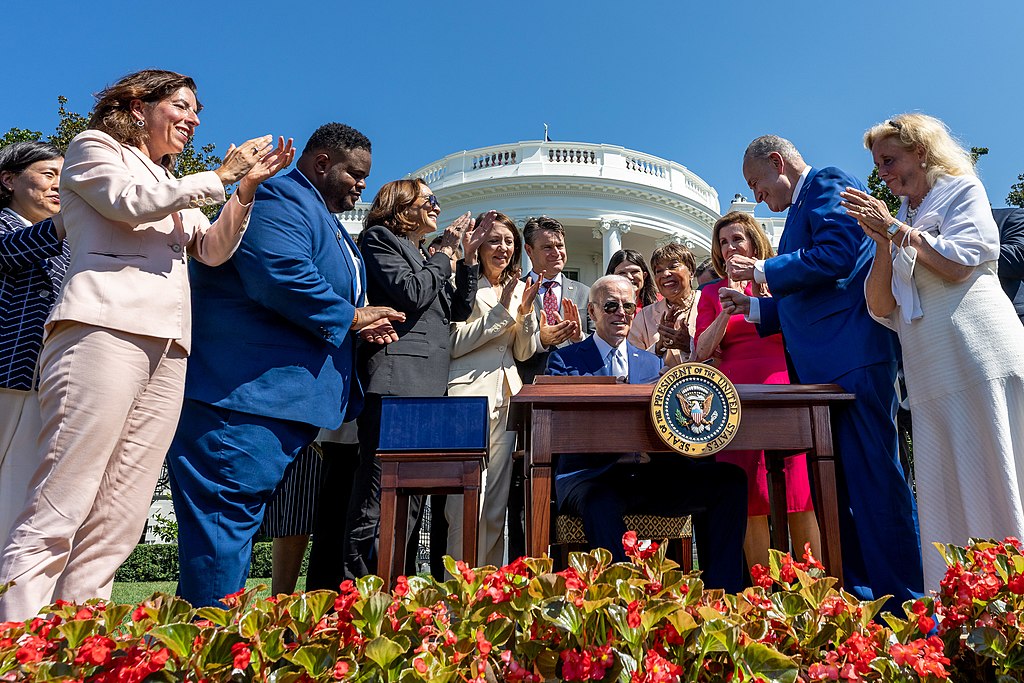President Biden signed an executive order on Wednesday to restrict high-tech U.S.-based investments going toward China.
The order covers advanced computer chips, micro electronics, quantum information technologies and artificial intelligence.
“The Biden Administration is committed to keeping America safe and defending America’s national security. That includes appropriately protecting technologies that are critical to the next generation of military innovation,” said a senior White House official during a background call with the news media.
The official went on to say that the Chinese government has “a stated goal to acquire and produce key sensitive technologies that directly support [China’s] military modernization and related activities, such as weapons development, and has exploited U.S. investments to develop domestic military and intelligence capabilities.”
The White House noted that the issue of tech security has bipartisan support from Congressional lawmakers through the National Critical Capabilities Defense Act, as well as through the Outbound Investment Transparency Act that “meaningfully” regulates outbound investments. The latter Act is an amendment to the National Defense Authorization Act (NDAA) which funds the military.
The Chinese Ministry of Commerce responded Thursday to Biden’s latest executive order, saying it has “serious concern” about the order and “reserves the right to take measures.”
The executive order came one year after Biden signed the bipartisan CHIPS and Science Act, legislation aimed at addressing a semiconductor chip shortage, making the U.S. less reliant on other countries like China for manufacturing, and offsetting future supply-chain issues.
“We invented the semiconductor. This law is bringing more of the production of microchips—and the jobs and innovation that come with them—back home,” Biden wrote on social media, marking the law’s one-year anniversary.
In the year since the CHIPS and Science Act was enacted, companies have announced $166 billion in investments in semiconductors and electronics, according to a White House fact sheet which adds that at least 50 community colleges in 19 states have announced new or expanded programming “to help American workers access good-paying jobs in the semiconductor industry.”


